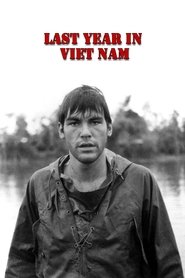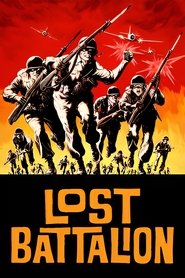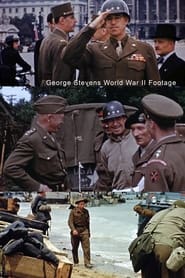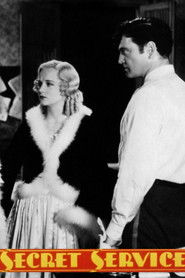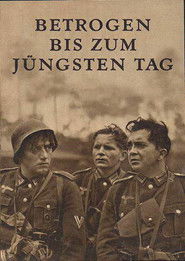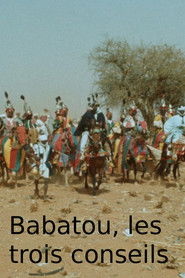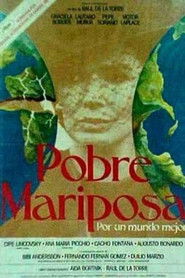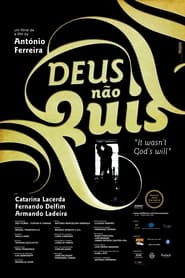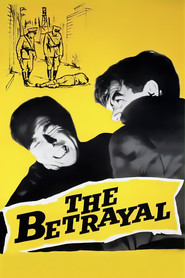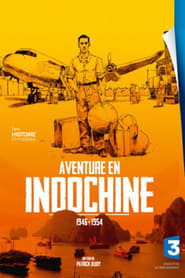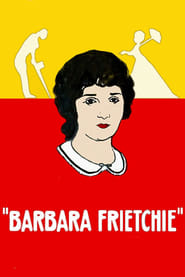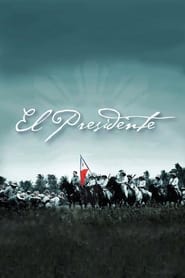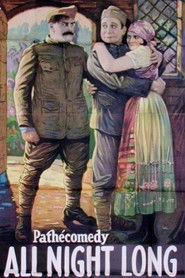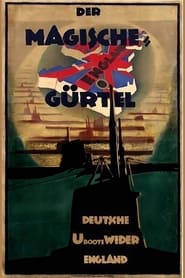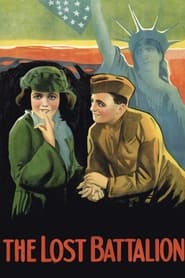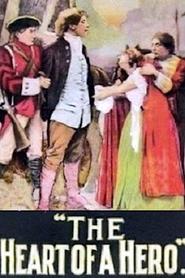Top Rated War Movies on Tub Tv - Page 280
-
Last Year in Viet Nam
1971
star 4.5Oliver Stone's first and only student film is about a man returning home from Vietnam and not being able to fit in. We see him throw away the stuff he got while serving and then he heads out to walk around NYC. -
Lost Battalion
1962
Lost Battalion
1962
star 3.5In the Philippines during World War II, a girl is rescued from bandits by a guerrilla fighter. -
George Stevens World War II Footage
1946
star 8Raw footage filmed by George Stevens during World War II between 1944 and 1946 for the US Army Signal Corps. Includes footage shot at D-Day, the liberation of Paris and the Dachau concentration camp. -
Secret Service
1931
Secret Service
1931
star 6In 1864 a Secret Service agent for the Union army goes undercover in Richmond and pretends to be a Confederate captain. -
Duped Till Doomsday
1957
Duped Till Doomsday
1957
star 6East Germany's contribution to the 1957 Cannes Film Festival was the wartime melodrama Betrogen bis zum Juengsten Tag. Had the film been released in the U.S., the title would probably have translated to Duped Till the Last. The film condemns the Nazi mindset by concentrating on a particularly odious cover-up. When his son is involved in the accidental killing of a girl, a Gestapo general pulls strings to save the boy from prosecution. The general manages to pin the blame for the killing on a group of Russians, whereupon he gives the men under his command carte blanche to round up and execute as many innocent Russians as they wish. This act of brutality is contrasted with the pangs of guilt suffered by the son and his co-conspirators. -
Babatou, Three Pieces of Advice
1976
star 5Once upon a time, in the middle of the last century, a great warrior named Babatou. Nigerian jumper from the region Dounga Gurunsi invaded the country and settled there. The brave prisoners were integrated into the army, women espoused. For fifty years, the adventurous young people from Niger Babatou went to live in the epic. -
Poor Butterfly
1986
Poor Butterfly
1986
star 6A turbulent era in Argentine politics is highlighted in this well-wrought drama, set in Buenos Aires at the end of 1945, about Clara (Graciela Borges), a young, half-Jewish woman awakening to the reasons behind the political conflicts of her time and place. Clara's father was a Communist who fought the Nazis in Argentina and possessed a list of the top Nazi exiles and their contacts. Through a former lover, Clara -- a successful broadcast journalist -- begins to see her Jewish roots (and the leftists) in a whole new light. Meanwhile, the political storms sweeping through Argentina are setting the stage for the Peronist government to come. -
Private Potter
1962
Private Potter
1962
star 3.5A military mission is interrupted when a British soldier claims that God had appeared to him in a transcendental vision. -
Winged Victory
1944
Winged Victory
1944
star 5.5Pinky Scariano, Allan Ross, and Frankie Davis all join the Army Air Forces with hopes of becoming pilots. In training, they meet and become pals with Bobby Grills and Irving Miller, and the five struggle through the rigid training and grueling tests involved in becoming pilots. Not all of them succeed, and tragedy awaits for some. -
Heroes All
1920
Heroes All
1920
star 5Examination of returning wounded WWI veterans and their treatment at Walter Reed Hospital, along with visits to iconic landmarks in Washington, D.C. -
It Wasn't God's Will
2007
It Wasn't God's Will
2007
star 6.5The story of Ramiro, a young boy, who is leaving to war; his return and his missing with the love of his life, Laurinda. -
The Betrayal
1957
The Betrayal
1957
star 6Fourteen years after he was blinded in a WWII concentration camp, a Canadian perfume executive travels to London on business and recognizes the voice of the traitor who betrayed him and his fellow prisoners to the Germans. -
Barbara Frietchie
1924
Barbara Frietchie
1924
star 7.5Two lovers in a small town in Maryland are torn apart by the Civil War--she is loyal to the south while he heads north to join the federal army, determined to protect the Union. Eventually his unit arrives in his hometown and he is reunited with his lover, but things aren't the way they used to be. -
El Presidente
2012
El Presidente
2012
star 5.2The film begins with his capture by Philippine and US forces under Frederick Funston's command in 1901, then flashes back to 1886, when an old woman gives Aguinaldo and his childhood friend Candido Tirona cryptic prophecies. Ten years later, Aguinaldo is inducted into the Katipunan and later assumes leadership of its Cavite chapter while becoming mayor of Cavite El Viejo. When the trouble breaks out in Manila in late August 1896, Aguinaldo tries to assure the Spanish provincial government of non-interference and covertly marshals his forces despite a lack of weapons. Learning that the Spanish mostly put their forces in Manila, Aguinaldo finally mobilizes his troops and take the command of the Katipunan forces in Cavite -
Kingdom of Dust
2011
Kingdom of Dust
2011
star 4.5In a basement, somewhere in war torn Baghdad, hostage Adam Smith is waiting to die. With no time, no chance, and no hope, he must look into the abyss of his own personal hell and it is here, 'in the valley of the shadow of death' that something divine is awaiting him. -
All Night Long
1924
All Night Long
1924
star 7.5Harry runs into his old Marine sergeant and is reminded of the rivalry they had for a girl while they were stationed in France. -
The Enchanted Circle
1917
The Enchanted Circle
1917
star 6A documentary filmed aboard a German U-Boat during the First World War, featuring footage of the capture and sinking of cargo ships and a private schooner. -
The Lost Battalion
1919
The Lost Battalion
1919
star 5World War I, October 1918. The more than 500 men of the 77th Infantry Division of the United States Army, who have been recruited in New York City and trained in Yaphank, are sent to France, to help break down the German defenses located in the Argonne forest… -
The Heart of a Hero
1916
The Heart of a Hero
1916
star 5This is a visualization of the life of patriot Nathan Hale which is based on a play by Clyde Fitch. Robert Warwick plays Nathan (and does a fine job) and Gail Kane the girl whom he loves (Alice Adams).
 Netflix
Netflix
 Amazon Prime Video
Amazon Prime Video
 Apple iTunes
Apple iTunes
 Apple TV Plus
Apple TV Plus
 Disney Plus
Disney Plus
 Google Play Movies
Google Play Movies
 Paramount Plus
Paramount Plus
 Hulu
Hulu
 HBO Max
HBO Max
 YouTube
YouTube
 fuboTV
fuboTV
 Peacock
Peacock
 Peacock Premium
Peacock Premium
 Amazon Video
Amazon Video
 The Roku Channel
The Roku Channel
 AMC+
AMC+
 Kocowa
Kocowa
 Hoopla
Hoopla
 The CW
The CW
 Vudu
Vudu
 Starz
Starz
 Showtime
Showtime
 PBS
PBS
 Pantaflix
Pantaflix
 FXNow
FXNow
 Tubi TV
Tubi TV
 Kanopy
Kanopy
 Comedy Central
Comedy Central
 Crunchyroll
Crunchyroll
 Microsoft Store
Microsoft Store
 Redbox
Redbox
 Sun Nxt
Sun Nxt
 ABC
ABC
 DIRECTV
DIRECTV
 Crackle
Crackle
 Fandor
Fandor
 Plex
Plex
